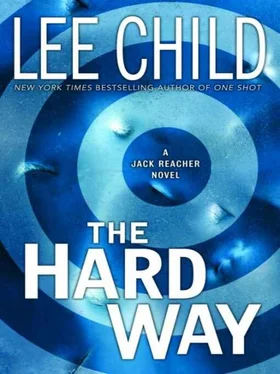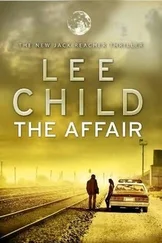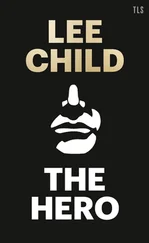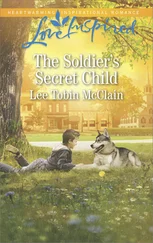Pauling asked, “What’s Grange Farm going to be like?”
“I don’t know,” Reacher said. “Technically in Old English a grange was a large barn for grain storage. Then later it became a word for the main building in a gentleman’s arable farm. So I guess we’re going to see a big house and a bunch of smaller outbuildings. Fields all around. Maybe a hundred acres. Kind of feudal.”
“You know a lot.”
“A lot of useless information,” Reacher said. “Supposed to fire my imagination.”
“But you can’t get no satisfaction?”
“None at all. I don’t like anything about this whole situation. It feels wrong.”
“Because there are no good guys. Just bad guys and worse guys.”
“They’re all equally terrible.”
“The hard way,” Pauling said. “Sometimes things aren’t black and white.”
Reacher said, “I can’t get past the feeling that I’m making a bad mistake.”
England is a small country but East Anglia was a large empty part of it. In some ways it was like driving across the prairie states. Endless forward motion without much visible result. The little red Mini Cooper hummed along. The clock in Reacher’s head crawled around to ten in the evening. The last of the twilight disappeared. Beyond the bright ribbon of road was nothing but full darkness.
They bypassed a town called Thetford. Much later they blew through a town called Fenchurch Saint Mary. The road narrowed and the streetlights disappeared. They saw a sign that said Norwich 40 Miles . So Reacher switched maps and they started hunting the turn down to Bishops Pargeter. The road signs were clear and helpful. But they were all written with the same size lettering and there seemed to be a maximum permitted length for a fingerpost. Which meant that the longer names were abbreviated. Reacher saw a sign to B’sh’ps P’ter flash by and they were two hundred yards past it before he figured out what it meant. So Pauling jammed to a stop in the lonely darkness and U-turned and went back. Paused a second and then turned off the main drag onto a much smaller road. It was narrow and winding and the surface was bad. Pitch dark beyond the headlight beams.
“How far?” Pauling asked.
Reacher spanned his finger and thumb on the map.
“Maybe nine miles,” he said. The motoring atlas had showed nothing but a blank white triangle between two roads that fanned out south of the city of Norwich. The Ordnance Survey sheet showed the triangle to be filled with a tracery of minor tracks and speckled here and there with small settlements. He put his finger on the Bishops Pargeter crossroad. Then he looked out the car window.
“This is pointless,” he said. “It’s too dark. We’re not even going to see the house, let alone who’s living in it.” He looked back at the map. It showed buildings about four miles ahead. One was labeled PH . He checked the legend in the corner of the sheet.
“Public house,” he said. “A pub. Maybe an inn. We should get a room. Go out again at first light.”
Pauling said, “Suits me, boss.”
He realized she was tired. Travel, jet lag, unfamiliar roads, driving stress. “I’m sorry,” he said. “We overdid it. I should have planned better.”
“No, this works,” she said. “We’re right on the spot for the morning. But how much farther?”
“Four miles to the pub now, and then five more to Bishops Pargeter tomorrow.”
“What time is it?”
He smiled. “Ten forty-seven.”
“So you can do it in multiple time zones.”
“There’s a clock on the dashboard. I can see it from here. I’m practically sitting in your lap.”
Eight minutes later they saw a glow in the distance that turned out to be the pub’s spotlit sign. It was swinging in a gentle night breeze on a high gallows. The Bishop’s Arms . There was a blacktopped parking lot with five cars in it and then a row of lit windows. The windows looked warm and inviting. Beyond the dark outline of the building there was absolutely nothing at all. Just endless flatness under a vast night sky.
“Maybe it was a coaching inn,” Pauling said.
“Can’t have been,” Reacher said. “It’s not on the way to anywhere. It was for farm laborers.”
She turned in at the entrance of the parking lot and slotted the tiny car between a dirty Land Rover and a battered sedan of indeterminate make and age. Turned the motor off and dropped her hands off the wheel with a sigh. Silence rolled in, and with it came the smell of moist earth. The night air was cold. A little damp. Reacher carried Pauling’s bag to the pub’s door. There was a foyer inside, with a swaybacked staircase on the right and a low beamed ceiling and a patterned carpet and about ten thousand brass ornaments. Dead ahead was a hotel reception counter made from dark old wood varnished to an amazing shine. It was unattended. To the left was a doorway marked Saloon Bar . It led to a room that seemed to be empty. To the right beyond the stairs was a doorway marked Public Bar . Through it Reacher could see a bartender at work and the backs of four drinkers hunched on stools. In the far corner he could see the back of a man sitting alone at a table. All five customers were drinking from pint pots of ale.
Reacher stepped up to the empty reception counter and dinged the bell. A long moment later the bartender came in through a door behind the counter. He was about sixty, large and florid. Tired. He was wiping his hands on a towel.
“We need a room,” Reacher said to him.
“Tonight?” he said back.
“Yes, tonight.”
“It’ll cost you forty pounds. But that’s with breakfast included.”
“Sounds like a bargain.”
“Which room would you like?”
“Which would you recommend?”
“You want one with a bath?”
Pauling said, “Yes, a bath. That would be nice.”
“OK, then. That’s what you can have.”
She gave him four ten-pound notes and he gave her a brass key on a tasseled fob. Then he handed Reacher a ballpoint pen and squared a register in front of him. Reacher wrote J amp; L Bayswater on the Name line. Then he checked a box for Place of Business rather than Place of Residence and wrote Yankee Stadium’s street address on the next line. East 161st Street, Bronx, New York, USA . He wished that was his place of business. He always had. In a space labeled Make of Vehicle he scrawled Rolls-Royce . He guessed Registration Number meant license plate and he wrote R34-CHR. Then he asked the bartender, “Can we get a meal?”
“You’re a little too late for a meal, I’m afraid,” the bartender said. “But you could have sandwiches, if you like.”
“That would be fine,” Reacher said.
“You’re Americans, aren’t you? We get a lot of them here. They come to see the old airfields. Where they were stationed.”
“Before my time,” Reacher said.
The bartender nodded sagely and said, “Go on in and have a drink. Your sandwiches will be ready soon.”
Reacher left Pauling’s bag at the foot of the stairs and stepped in through the door to the public bar. Five heads turned. The four guys at the bar looked like farmers. Red weathered faces, thick hands, blank uninterested expressions.
The guy alone at the table in the corner was Taylor.
LIKE THE GOODsoldier he was Taylor kept his eyes on Reacher long enough to assess the threat level. Pauling’s arrival behind Reacher’s shoulder seemed to reassure him. A well-dressed man, a refined woman, a couple, tourists . He looked away. Turned back to his beer. Beginning to end he had stared only a fraction of a second longer than any man would in a barroom situation. And actually shorter than the farmers. They were slow and ponderous and full of the kind of entitlement a regular patron shows to a stranger.
Читать дальше












